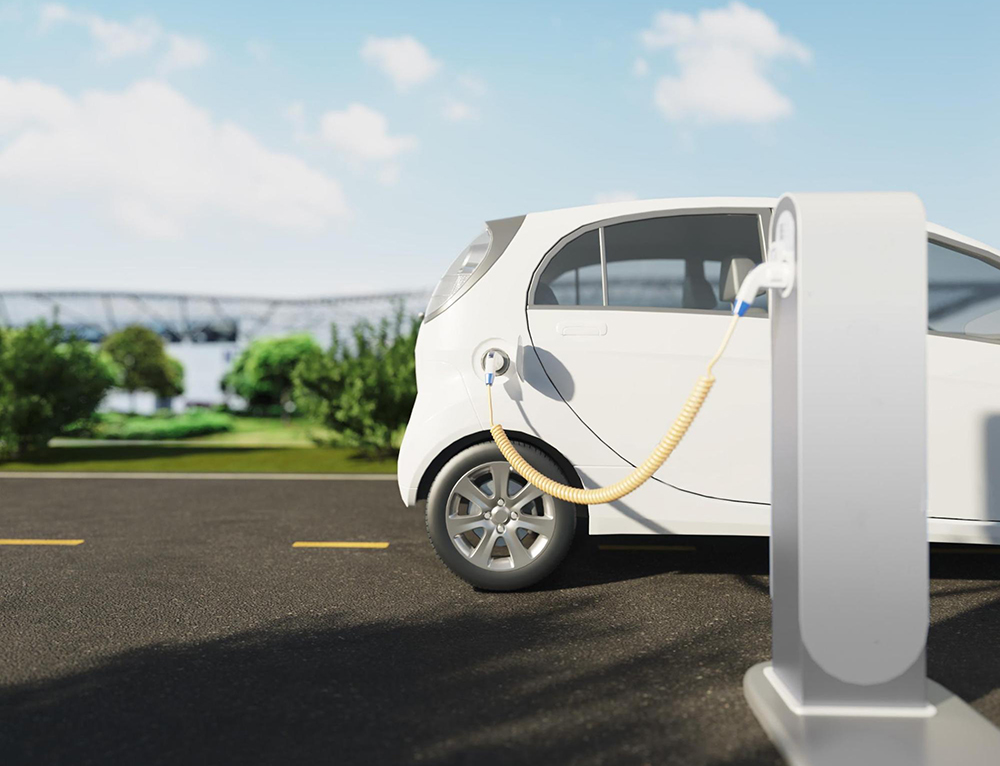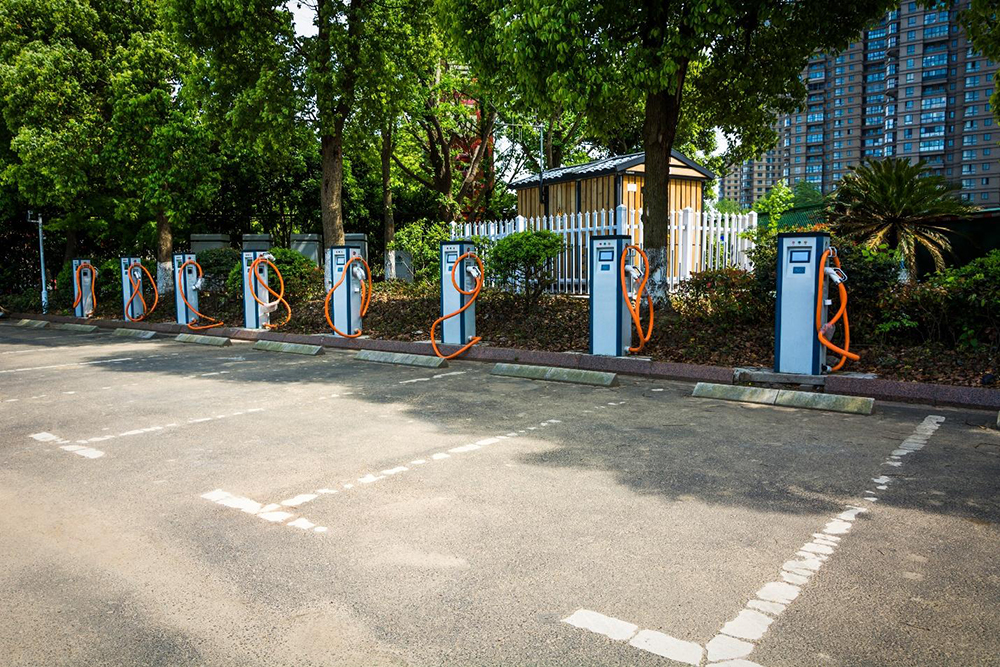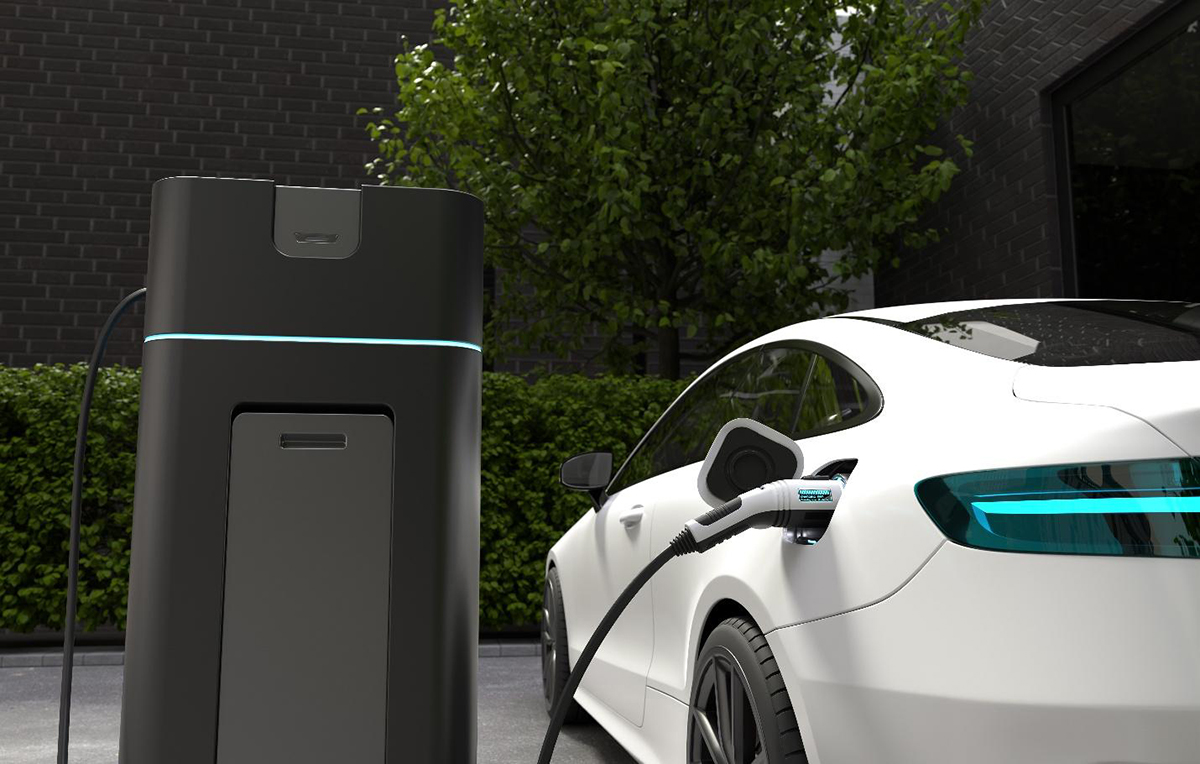Summary
EV fast charging stations are ideal for busy offices because they allow professionals to concentrate on their work without worrying about battery availability and vehicle range.
Table of Contents
Introduction
Installing an office EV charger has become essential to sustaining business operations and attracting new talent. As electric vehicles become more popular and people recognize their unique advantages over gasoline-based cars, businesses are looking to establish their reputation as an environmentally friendly operation while enhancing comfort and convenience for busy professionals who need to charge their vehicles quickly and efficiently.
In this article, Tercero Inc. explores some facts about EV fast charging stations and why they are perfect for busy offices. We also examine the benefits of these chargers to employers and key considerations for installing EV chargers on commercial property.
Let’s begin.
Why Offices Need EV Charging Solutions
1. Meeting Sustainability Goals
Offering EV charging facilities on your business premises is a straightforward way to commit to sustainability. EV charging will improve your reputation and help lower your company’s greenhouse emissions.
More importantly, installing EV fast charging stations allows you access to networked features that will enable you to track and manage the impact of your EV program.
2. Attracting and Retaining Top Talents
Climate protection is a top concern for both corporations and employees. Most businesses report that top talent is scrutinizing corporate sustainability agendas more. Installing electric vehicle charging stations on your premises can attract the best talent and retain your current employees.
Apart from focusing on sustainability, installing office EV chargers shows your commitment to employee welfare, satisfaction, and comfort. It also increases employee engagement and loyalty as they save time and money on commuting.
3. Enhancing Brand Reputation
Installing EV charging stations in your office establishes your brand as a leader in innovation, sustainability, employee comfort and satisfaction, and corporate responsibility. The improved reputation you get from your EV charging project can easily translate into enhanced customer and brand trust, the ability to attract and retain top talents, and an edge against the competition.
4. Customer Attraction
While electric vehicles are increasingly popular, access to an efficient and reliable charging facility remains problematic. Installing office EV chargers on your business premises establishes your brand as one of the community’s reliable and efficient EV charging points. And as more people visit for charging purposes, they are more likely to become acquainted with your other services.
5. Government Incentives
Installing commercial EV chargers is an expensive project. To reduce the cost burden and increase profitability, many government offices and departments offer incentives, such as tax credits, grants, or rebates, to encourage businesses to install EV charging stations. You should know that most government incentives target commercial EV chargers (level 2 and DC fast chargers).
The Advantages of EV Fast Charging Stations in Offices

1. Additional Income from Multiple Sources
The most important advantage of investing in EV fast charging stations is the opportunity to derive additional income from multiple sources. Business owners can charge customers a fee based on electricity consumption or time used. They will also benefit from the increased foot traffic and the new customers the service attracts.
2. Cost Savings and Incentives
Employers can benefit from cost savings and other incentives by installing office EV chargers. Federal and state governments offer businesses tax credits, grants, and subsidies to offset the initial cost of installing EV chargers.
Workplaces can also negotiate favorable electricity rates for charging stations. They can also reduce fuel and maintenance expenses for their fleet of vehicles, enabling long-term savings.
3. Employee Productivity
Installing an office EV charger enhances employee productivity by allowing employees to focus on tasks without worrying about charging availability or vehicle range. This eliminates potential disruptions and improves output, ultimately leading to organizational success.
How Fast Charging Works
Electric Vehicle fast charging stations enhance charger connection and enable key components to perform efficiently.
- Power converters: They use AC/DC converters to transform alternating current (AC) from the electrical grid into direct current (DC) needed to directly charge the batteries of electric vehicles, bypassing the limited onboard charger.
- Power output: They offer variable power outputs, between 50 kW and 350 kW, allowing an electric vehicle battery to be charged up to 80% in about 20-40 minutes, depending on the vehicle model and initial battery charge.
- Cooling system: EV fast charging stations have air and liquid cooling systems that ensure better performance even in extreme heat conditions.
- Charging Standards: They use protocols like CSS (Combined Charging System) and CHAdeMO to communicate with vehicles through a standardized language, ensuring efficient and reliable charging.
- Load management: They can limit the power drawn based on the grid’s demand, integrating with smart grids to use energy efficiently.
Key Considerations for EV Charging Installation in Offices

1. Business Goal Alignment
Before considering the practicalities of EV installation, you must first sort out the business case and requirements. For example, you must first identify your customer base, how many EVs you can charge daily, and if you will offer complementary services to your employees.
2. Type of Charger
You need to consider what type of charger suits your business model. Most office EV chargers are of the fast charging variety, precisely level 2 and DC fast chargers.
3. Location
The location of your office EV charger is an important consideration. When determining the distance, consider the following factors:
- The distance between the electrical panel and the charging station can affect installation cost and service reliability.
- The size of the charger
- Parking space availability
4. Electrical panel upgrade
Installing commercial EV charging stations is more complicated than plugging it into your workplace’s power grid. EV fast chargers need special wiring to operate efficiently, safely, and reliably. You must upgrade your electrical panel to ensure your power grid can handle the added strain.
5. Installation and maintenance cost
You should consider the cost of installation and maintenance. Commercial EV chargers are expensive, but you can offset this cost by applying for government incentives such as tax credits, grants, and subsidies.
Steps to Install EV Charging Stations for Your Office
1. Assess the Demand
Before investing money and time into installing EV charging stations for your office, ensure it is right for your business and people. The first step is understanding the demand for EV charging among your employees. You can conduct surveys to gauge their interest and uncover valuable insights.
2. Evaluate Site Feasibility
Once you understand the demand, the next step is conducting a site assessment to find the best charger location. You must ensure that your building’s electrical infrastructure can support an additional load of charging stations. An electrician can assess your current capacity and recommend upgrades.
Identifying areas that can accommodate charging without causing congestion is vital.
3. Research Charging Station Types

Choosing the correct type of charging station is crucial to fulfilling your business goals and meeting the needs of your employees. There are three primary types of charging stations. They are:
- Level 1 Charging: This charger uses a standard 120-volt household outlet. It is the slowest option available and unsuitable for office and commercial use.
- Level 2 Charging: This charger uses a 240-volt outlet. It delivers 10-20 miles of range per hour, making it ideal for workplaces and employees with limited time.
- DC Fast Charging: This charger can recharge up to 80% of a vehicle’s battery in as little as 20 minutes. However, it requires a more extensive electrical infrastructure and is more expensive.
4. Estimate the Cost
When estimating the cost of EV installation, consider the cost of equipment, installation, and maintenance. Several funding options, including government grants, tax credits, and more, can offset the initial cost of installation.
5. Implement a Management Plan
Create a management plan that ensures your charging station operates efficiently and meets your employee’s needs. You should start by determining who can use the facility and if it will be free for users and your employees.
Conclusion
Installing office EV chargers can enhance productivity, increase revenue, and improve brand recognition. However, commercial EV chargers are prohibitively expensive because of the extensive additional work needed to ensure smooth, reliable, and safe operation. With the assistance of expert EV charging contractors like Tercero Inc., you can easily offset the initial cost of installation and achieve profitability. Contact Tercero Inc. now for EV charging installation.
FAQs
EV charging stations offer cost savings and additional income to business owners.
Charging an electric car fully can take as little as 30 minutes.
To install EV chargers, you should assess the demand, do a site assessment, research charger types, estimate costs, and implement a management plan.
Fast charging stations convert AC to DC to improve efficiency and charging times.
Considerations for installing an EV charging station include aligning business goals, location, type of charger, and electrical panel upgrade.

